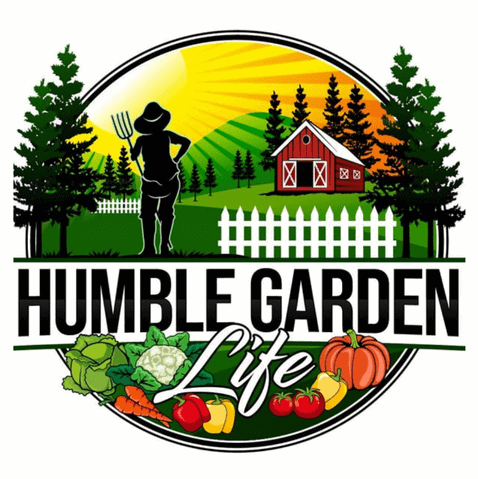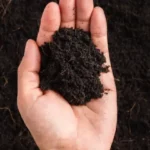Have you ever wondered if you need to include a compost starter to hasten decomposition? Composting is a great way to reduce household waste, save money, help the environment, and provide nutrient-dense goodness to your budding vegetable plants. So, good on you if you’ve already established a consistent composting routine. But if you’re just beginning your composting journey, do you need a compost starter to get your pile going? It’s an important question that many new composters ask.
Under the right conditions, with the proper balance of carbon and nitrogen, compost will decompose without using a compost starter. However, compost starters jump-start the decomposition process if you’re looking for mature compost by adding beneficial microbes to the pile. Compost starters are also advantageous in unfavorable conditions, such as colder climates, where decomposition may be more challenging.
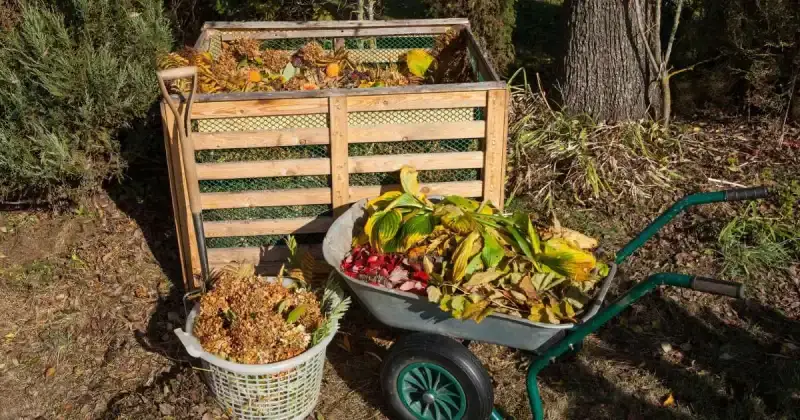
Composting at home has become increasingly popular as more people have become aware of its many environmental benefits as they begin growing homemade fresh produce.
Composting reduces our reliance on landfills and incinerators and helps replenish the soil with essential nutrients and minerals, making an inviting environment for the plants and seeds we sow in the backyard.
However, composting isn’t just good for the environment. This sustainable practice can also help gardeners save money by creating essential, nutrient-rich fertilizers instead of buying expensive store-bought products. But before you start putting all your organic material into an open-air compost pile or tumbler and expect magic to happen, there are some things you should know first.
In this article, I’ll explore what compost starters are, why they may be necessary for your composting needs in your neck of the woods, and how you can purchase them or make effective alternatives right at home. So if you’re ready to crank up your composting game, let’s start!
Humble Highlights
- Discover the uses of compost starter and whether or not you need it in your backyard pile to achieve a more nutrient-dense product.
- Learn the pros and cons of using compost starters and accelerators along with the 3 different kinds so you’ll know exactly what to use on your pile and how each will impact it.
- Save money by making your DIY compost starter right at home, right from the materials you already have, so you can get your pile performing quickly and effortlessly!
What Is Compost Starter
A compost starter contains organic materials that add beneficial microbes and nutrients directly into your compost pile, encouraging decomposition. It helps jump-start this decomposition by providing necessary bacteria, fungi, protozoa, and other microorganisms that break down organic matter in an efficient and expedited way.
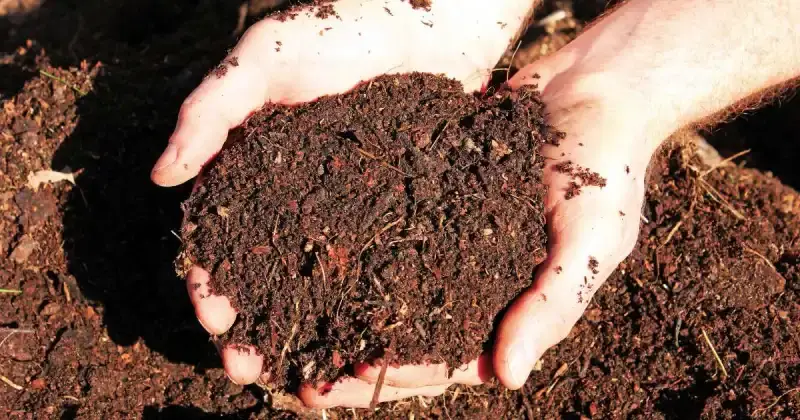
As microorganisms naturally break down your compost, a process known as an exothermic reaction occurs. This activity generates heat, further speeding up decomposition within your pile. However, when you incorporate a compost starter, you provide essential plant nutrients like nitrogen and phosphorus, which further help accelerate the entire composting process.
Check Lowest Prices On Composting Books Today
Compost starters can be very helpful for those looking to create their first compost pile or accelerate the decomposition process in an existing one. When added in small amounts at the beginning of the composting process, a starter provides all the fantastic benefits without disturbing the natural balance of green (nitrogen) and brown (carbon) materials within your heap. 1
In addition to its ability to kick-start a new pile or rev up an old one, adding a compost starter boosts the overall quality of your finished product. This makes it ideal for gardeners who want a nutrient-rich soil amendment for their plants that doesn’t require additional effort.
Check Lowest Prices On Compost Starters Today
There are typically two primary ways to manage your open-air compost pile. The first is called hot composting and involves weekly turning of your pile that encourages air and moisture to permeate throughout. While this method does take more consistent effort, decomposition occurs faster, and depending on the size of your heap, you may have mature compost in a few weeks to months.
The second composting method is called cold composting. Cold composting requires no effort but placing your organic kitchen scraps and yard waste in your pile. No watering or turning your pile is necessary as you wait for nature to run its course naturally. Also called the lazy-mans composting technique, cold composting takes a fair bit longer for compost to mature, which in some cases, can be up to 18 to 24 months.
Whichever technique you choose, you still reap all the incredible benefits of composting, such as saving money and time, helping the environment, and reducing household waste.
Do You Need Compost Starter
Whether or not you need a compost starter depends on several primary factors, including temperature, climate, weather, and a balanced nitrogen-to-carbon ratio. And although compost starters can be handy, there are several situations where they are not needed.
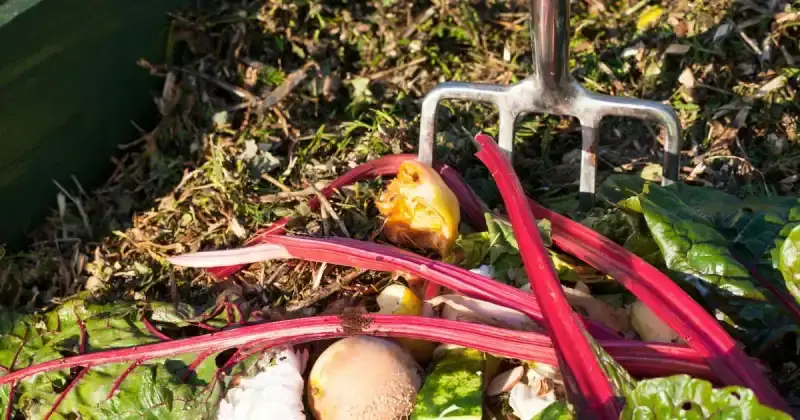
Let’s examine some of the main reasons you should and shouldn’t include a starter in your compost pile.
Consider adding a compost starter if:
- Your compost pile is new, and decomposition has yet to begin.
- You have added too much fresh green material (nitrogen) to your compost pile, which has slowed the natural rate of decomposition.
- The ambient temperature stops your compost pile from heating up and decomposing naturally. This is especially true in colder piles where heat doesn’t develop quickly enough to sustain microbial activity responsible for decomposition.
- You have an imbalance of nitrogen-rich (greens) and carbon-rich (browns) materials in your pile. Applying a starter will get them back in balance and accelerate the breakdown of organic matter.
However, you likely don’t need a compost starter if:
- You already have an established compost pile that effectively and efficiently breaks down naturally.
- Weather conditions are favorable, and temperatures are warm. However, even hot piles can benefit from a compost starter if temperatures and moisture levels fluctuate excessively. Be mindful of your region’s weather and observe your pile daily for consistent decomposition signs.
- You use an enclosed bin, tumbler, or rotator to protect your compost from the elements.
- You use a good balance of nitrogen and carbon-producing waste that reacts accordingly to produce heat and sustain the necessary bacteria.
Check Lowest Prices On Compost Tumblers Today
Ultimately, whether or not you use a compost starter in your backyard compost comes down to understanding what’s happening in your particular situation. If you’re a seasoned composting expert, carefully observing your compost helps provide clues to determine if your compost is breaking down correctly. 2
If you’re just starting, patience is critical. Managing compost is an art that you learn through doing and experience. To decide how best to work your compost pile or whether a starter is needed, adhere to the hot composting method previously mentioned. When turning your compost, you’ll either notice signs of decay or won’t. If decomposition occurs, you know your heap is working as intended. However, if you can still identify ingredients from weeks, even months ago, and your carbon-to-nitrogen ratio is balanced, consider incorporating a compost starter to encourage faster production.
One of the biggest challenges new composters face is balancing their nitrogen-to-carbon ratio. Whether you have an open-air heap in the backyard in the country or a small compost tumbler in the city, keeping your compost in balance signals a well-producing and healthy heap.
You’ll want to incorporate one part nitrogen (green) for every three parts brown (carbon) for a 3:1 ratio. Additionally, you’ll want to offer your compost good moisture and excellent airflow throughout the decomposition process.
Fortunately, you can quickly tell if your browns and greens become unbalanced due to unpleasant smells or when your compost turns into a slimy, gooey mess. When this happens, it likely means you’ve added too much nitrogen (kitchen scraps) and not enough carbon (cardboard, pelleted bedding, and leaves).
Benefits Of Using Compost Starter
Using a compost starter or accelerator can be beneficial in many ways. For example, it can help jump-start the decomposition process by introducing essential microorganisms to your pile that would otherwise take longer to develop naturally. These organisms break down organic matter quickly and efficiently, leading to faster decomposition times and higher levels of nutrient availability for plants.
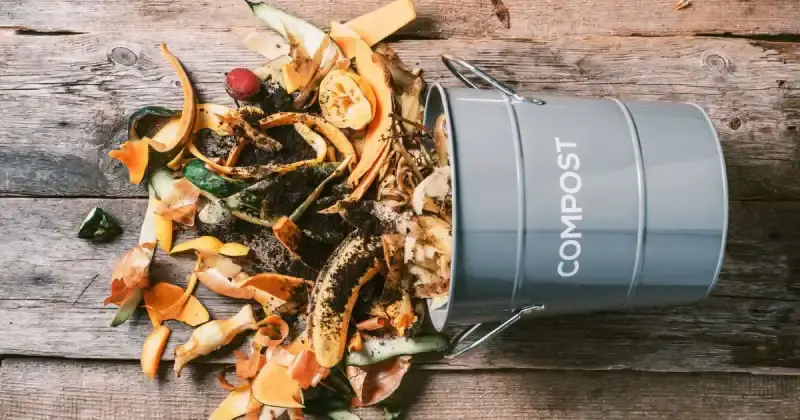
Another benefit of using a compost starter is that it can help maintain an ideal balance between carbon-rich and nitrogen-rich materials so that all components of the compost pile are breaking down at an optimal rate. As mentioned above, keeping your pile’s elements balanced makes it easier for gardeners to manage their compost since they won’t need to frequently amend or adjust their material ratios or turn them as often. 3
Check Lowest Prices On Compost Accelerators Today
Lastly, using a compost accelerator is often helpful when starting a new pile because it helps ensure enough microbes are present from the beginning instead of waiting for them to build up over time. Combining this with good pile management practices like aeration, moisture control, and proper drainage can lead to a successful and fruitful composting process in no time.
Drawbacks Of Using Compost Starter
Despite the many advantages of using a compost starter, some drawbacks include cost and improper compost imbalances. Let’s take a closer look at these disadvantages to help you determine if incorporating a starter in your heap is beneficial.
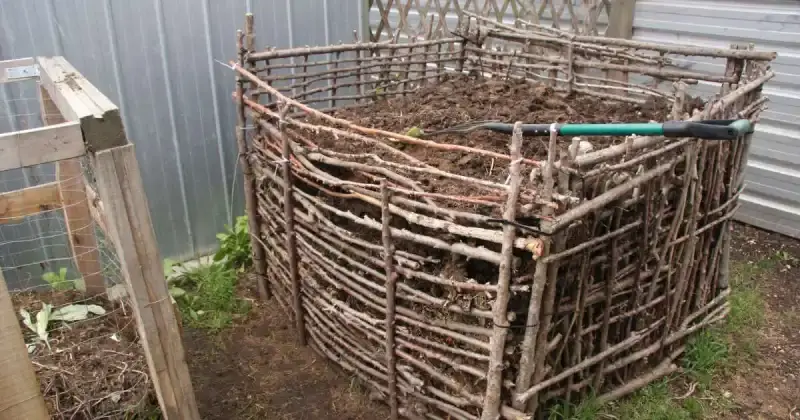
Although typically minimal, adding a starter to your compost is often an extra expense that gardeners may have yet to budget for or even realize they need. Also, while starters contain beneficial microbes, they don’t always include the exact ones necessary for optimal decomposition in your pile, climate, and temperate. Therefore, it could take longer than expected before you achieve desirable results. 4
Another potential downside is that too much starter can lead to an imbalance between carbon and nitrogen levels, resulting in too rapid decomposition, turning finished compost into smelly sludge instead of loose dark soil with plenty of vital plant nutrients. To avoid this unsightly and smelly result, follow the label’s instructions and ensure you use enough starter to effectively generate the process without overdoing things.
Types Of Compost Starters
There are several different types of compost starters available for gardeners, including:
- Microbial-based compost starter
- Compost activators
- Biological inoculants
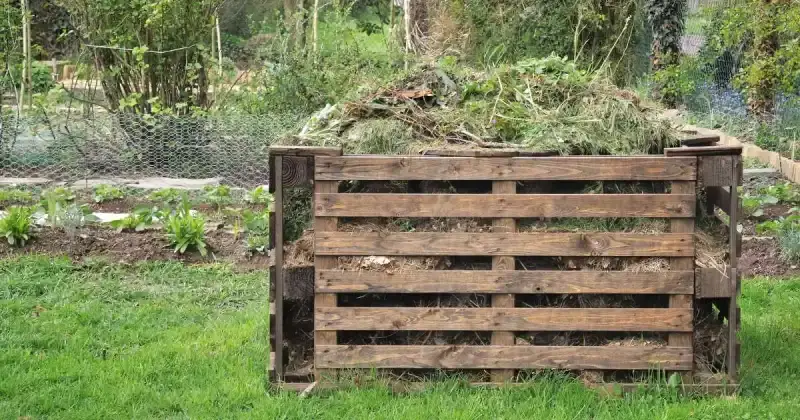
Let’s look at each of these compost starter options along with the unique benefits of each.
Microbial-Based Compost Starter
One popular option is a microbial-based starter, which contains beneficial fungi and bacteria that aid in breaking down organic matter into usable nutrients. Microbial-based starters often come in powders or liquid solutions that can be sprinkled over piles or mixed with water and sprayed onto them.
Compost Activators
Compost activators are another popular product that contains enzymes and other ingredients designed to accelerate decomposition. Activators usually demand more careful application than microbial starters, requiring specific amounts per volume to work properly. Adding too much could cause odor issues or an imbalance between nitrogen and carbon levels in the compost material. 5
Biological Inoculants
Finally, gardeners who want an extra boost for their compost may also use biological inoculants, which introduce specialized microorganisms to their decomposing heap. The specifically selected microorganisms can handle environmental conditions such as high temperatures or low pH levels better than most native species found naturally within existing piles.
The video below explains the best process to speed up your composting while discussing starters and activators. Though there is a fair amount of information regarding composting, this ancient horticultural practice should be relatively straightforward and basic quickly.
How To Use Compost Starter Effectively
Using compost starters effectively can be tricky, but with a few simple tips, it’s easy to get the most out of your pile in the least amount of time. First, however, you should decide which starter is best for your situation.
- Microbial starters are often suitable for beginners who want something that will work fast and doesn’t require too much maintenance.
- Activators or inoculants may be better for more experienced gardeners looking for specific results.
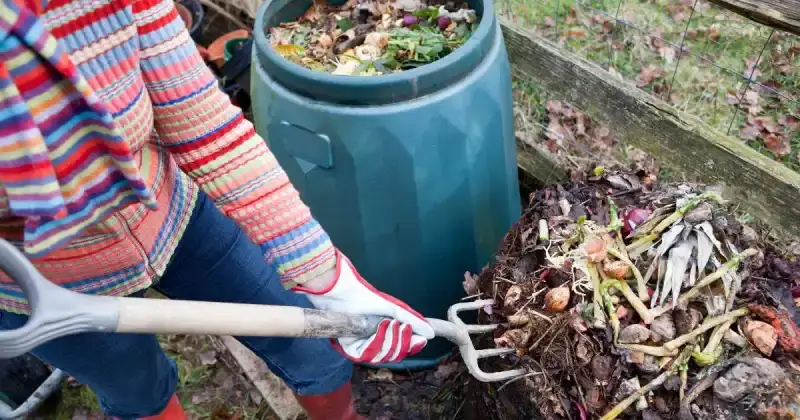
Once you’ve selected the right product, please read the instructions carefully and apply them accordingly.
The application process evenly distributes the starter or activator throughout the compost pile, ensuring uniform application and subsequent decomposition. If using liquids or sprays, avoid adding too much, which, as previously mentioned, can lead to an imbalance between nitrogen and carbon levels. 6
Additionally, monitor the moisture levels within the pile during decomposition, as too much or too little water can reduce the starter’s efficiency.
How To Make Your Own Compost Starter
Creating your own homemade compost starter makes an excellent alternative for those who want to take a more DIY approach. You’ll want to gather the appropriate materials and consider using oxygen boosters to help facilitate decomposition.
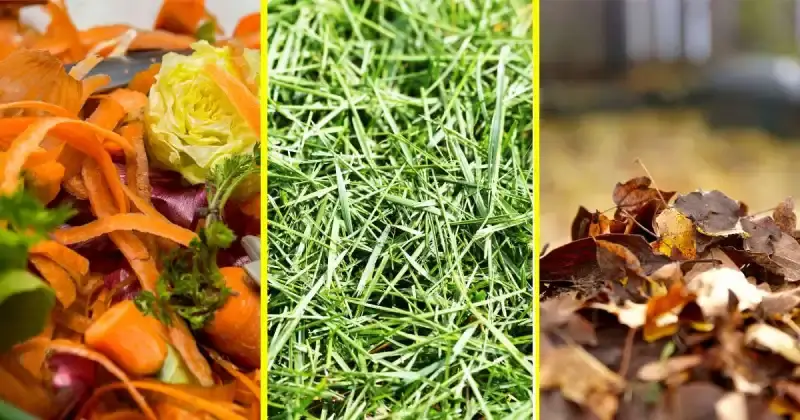
To get started, gather materials such as high-nitrogen sources like grass clippings, kitchen scraps, and other organic matter, all of which will help promote the proper environment for decomposition. It’s also essential to include some carbon sources like dried leaves or wood chips to ensure a balanced mixture.
If tossing yard scraps and grass clippings into your pile, ensure your yard hasn’t been or is currently being treated with synthetics. Yes, these chemicals may make your grass and shrubs look lovely. Still, if incorporated into your compost, they can have lasting residuals that can then be transferred into your vegetable garden when spreading your compost. Needless to say, if you’re running a chemical-free garden, it will be the end of your organic operation.
Once you’ve collected everything, mix it thoroughly before adding water until it reaches a damp but not soggy consistency. Remember, to develop good compost, your heap must have excellent drainage. Standing water doesn’t allow materials to decompose appropriately and may create areas where mold begins to form.
Although you won’t need to worry so much about this challenge if you have a compost tumbler, if you make an open-air pile, build the base with medium-sized logs or sticks to prevent pooling water from forming. Then, layer your greens and browns atop, much like when making your world-famous lasagna everyone raves about. 7
Another helpful tip is to use supplemental nitrogen supplements, such as manure, tea, or liquid fertilizer. However, as previously explained, you don’t want to overdo your nitrogen. If you’re already adding plenty of kitchen scraps to your compost, it may be best to skip these additional options.
Check Lowest Prices On Liquid Fertilizers Today
You can also use oxygen boosters to speed up the process by providing extra air pockets within the pile so microbes can flourish better than traditional composting methods. Feel free to experiment with the materials mentioned here to help you get the best results.
When Should You Apply A Compost Starter
Generally, it’s best to add a compost starter right after you’ve filled your compost pile with materials, as this will give the microbes time to get established before adding more organic matter. However, you can add a starter any time to boost your pile’s decomposition, especially if your mound isn’t breaking down properly. After adding your compost starter, you should typically see results within 4 to 8 weeks, depending on the pile’s size.
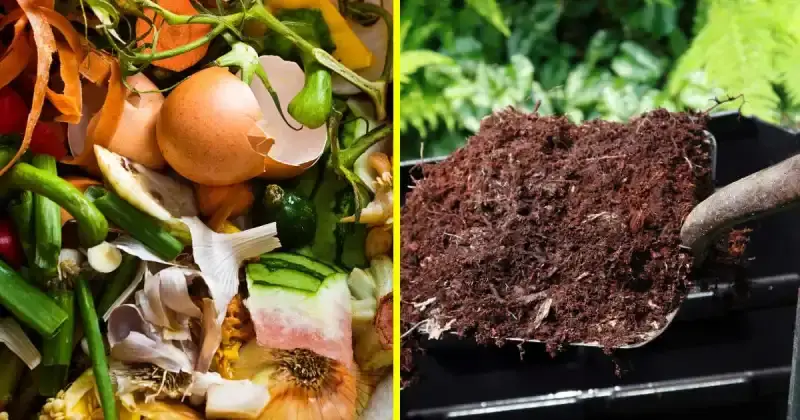
You should also apply a starter if your compost is not getting hot enough or decomposing quickly enough. There is nothing wrong with jump-starting the process, allowing your compost to reach optimal temperatures and break down faster. Fortunately, you can use a compost thermometer to keep track of the core temperature of your pile and determine if it’s generating enough heat. 8
Check Lowest Prices On Compost Thermometers Today
The ideal temperature for compost to break down is between 120-150°F (49-65°C). It will still break down at lower temperatures, as in cold composting methods, but the decomposition process takes longer.
Alternatives To Compost Starters
There are several options to choose from as alternatives to compost starters, including:
- Mature compost
- Adding worms and other insects
- Turning your pile regularly
- Adding more moisture
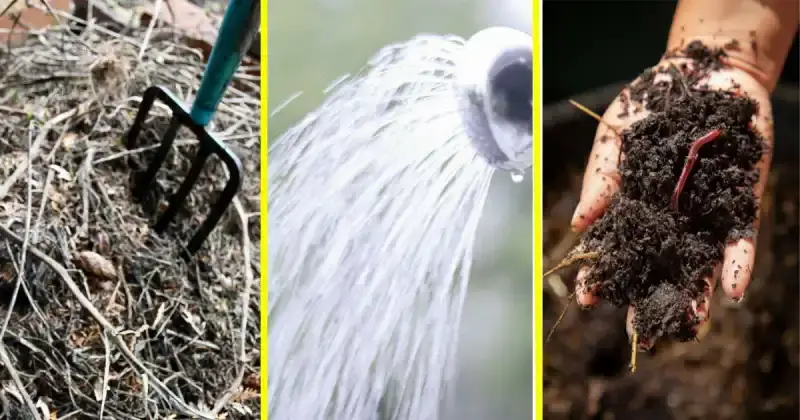
If you feel using a compost starter is excessive for your needs but still want to boost your compost heap, you can try some excellent alternatives.
Mature Compost
I often reserve and transfer a few shovelfuls of finished compost from my previous batch to the new pile I’m creating. This simple strategy is perhaps the easiest and quickest way to incorporate plenty of beneficial microbes and nutrients you’ve worked hard to cultivate into your new mound without spending additional money or wasting time. Further, transferring these microbes into the new pile will result in the quicker breakdown of the new organic matter you’ll add.
Adding Worms
You can also add worms and insects, which act as natural compost starters, providing oxygen and moisture and helping to break down problematic ingredients such as woody stems and leaves. Again, if your pile is large enough, these organisms may already exist naturally, but you can always add more to hasten the process.
Check Lowest Prices On LIVE Worms Today
Turning Your Pile Regularly
By turning your pile a few times per week, you’ll naturally incorporate the ingredients and encourage oxygen to permeate throughout. So grab a garden fork and mix your pile regularly. If you need to add more browns (carbon) or greens (nitrogen), feel free to do so during this time. 9
Check Lowest Prices On Garden Forks Today
Adding More Moisture
One of the challenges new composters face is not adding enough moisture to their pile. Even if their carbon-to-nitrogen ratio is balanced, you still need water to aid decomposition for your heap to function effectively, especially in arid or colder climates.
There are two excellent times to add moisture. First, when initially layering your browns and greens (like lasagna) when forming your heap, take a hose or watering can and add water atop each layer. Second, water your pile if it appears dry when turning. As your compost matures and becomes humus, you’re looking for a loamy type of “soil” that feels like a sponge when squeezed in your hand yet crumbles easily.
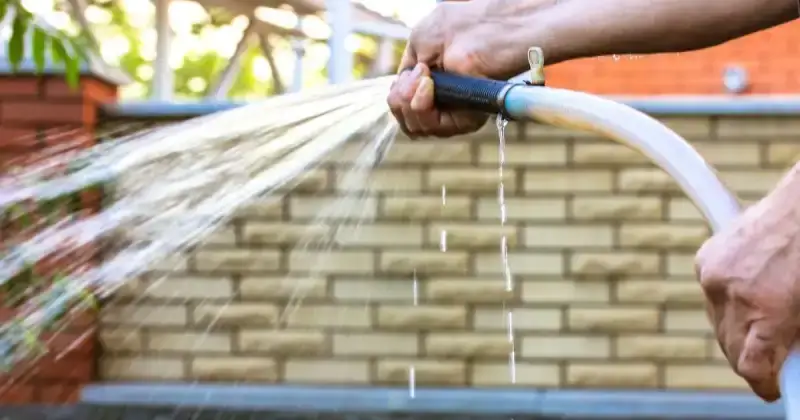
Check Lowest Prices On Watering Cans Today
Remember, compost starters haven’t always been around nor widely used, yet growers everywhere, from ancient times till today, managed just fine without them. Instead, these gardeners used traditional methods, like the ones mentioned above, to produce healthy, nutrient-rich compost for their budding gardens.
Additionally, using good quality mulch will benefit your developing compost by providing insulation so your pile can heat up more efficiently. Heat is the number one element of a productive compost pile. Composting involves four stages, each with varying degrees of heat; the Mesophilic, Thermophilic, Cooling, And Maturation stage.
To keep your compost hot, the most common and productive mulch you can add is more brown materials (carbon) in the way of decaying leaves and bark, along with small broken sticks and twigs.
Tips For Using A Compost Starter
Since you’ve decided to use a compost starter, ensuring your efforts succeed is essential. Here are some tips for ensuring your achievement when using a compost starter.
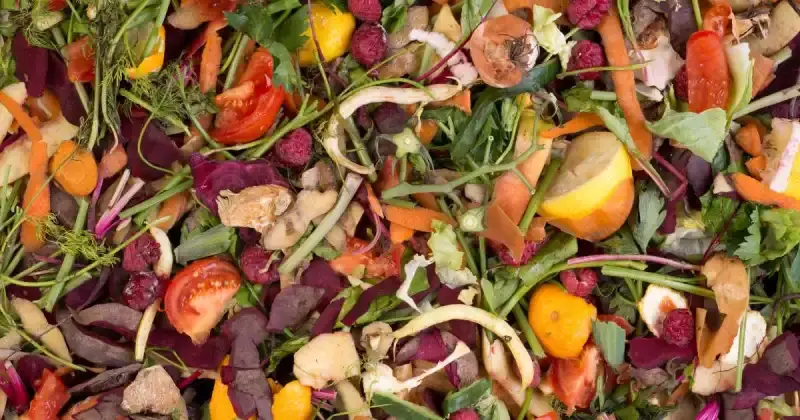
- Make sure to read and follow the instructions on the package carefully. It might seem obvious, but different starters need different amounts of water and other ingredients to work correctly. Also, be aware of expiration dates. Active ingredients may become less effective over time leading to disappointing and discouraging results.
- Add additional materials to your pile. For example, adding shredded newspaper or leaves can help aerate the mix so that oxygen can reach all areas and aid decomposition.
- Turn your pile. Turning your pile a few times per week using a shovel or garden fork helps encourage airflow and prevents pooling water from accumulating, aiding drainage. 10
- Understand that patience is vital. Developing mature humus (compost) takes time. Depending on your climate, pile size, nitrogen-to-carbon balance, turning frequency, and moisture content, it may take weeks, months, or even a year or more. Even if you choose a compost starter, noticeable results may take at least a month. Remember, nature doesn’t rush decomposition, but it will be thorough. Take your time, learn as you go, and most importantly, have fun. There is nothing better you could do for your flourishing vegetable plants than offering them homemade compost every year.
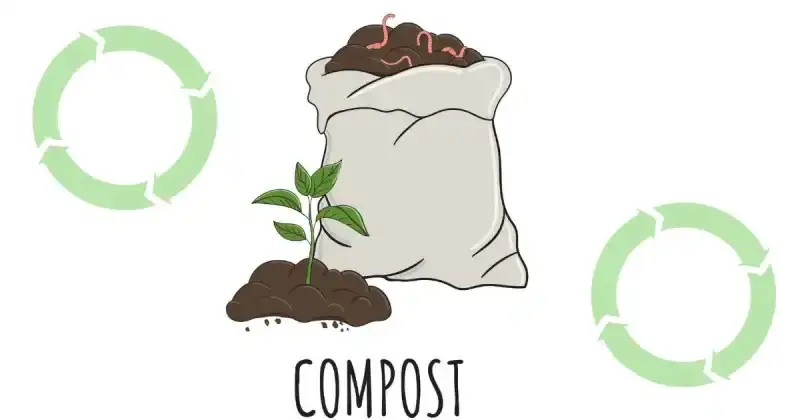
Conclusion
Compost starters are a great alternative to quickly enhance and jumpstart the decomposition process, regardless of whether you have an open-air pile or tumbler. These starters include organic matter and offer advantageous microbes to your pile that aid decomposition. When used correctly, you can reap all the benefits of nutrient-dense compost for a minimal investment.
There are three basic types of compost starters, including microbial-based, activators, and biological inoculants, each with unique advantages in aiding your pile. The best times to use a compost starter is once every three months on existing mounds or when starting a new compost pile. Be sure to read the label directions, as adding too much at once can upset your compost balance.
Other methods of incorporating organic matter into your compost without using starters are also acceptable. Simple strategies include adding mature compost from a previous batch to the new one, including more moisture for your pile to heat up effectively, and turning your heap more frequently.
And while compost starters are usually safe for all types of composting, there may be some special safety precautions that should be taken depending on the type used. So always read instructions carefully before using.
Have you used compost starters with success in your backyard? We’d love to hear your success story! So please take a few minutes and let us know the steps you took to boost your compost in the comments below!
SOURCES
- United States Environmental Protection Agency – Approaches To Composting
- Wikipedia – Compost
- MDPI – Home Composting: A Review Of Scientific Advances
- Cornell University – Oxygen
- Frontiers – Diversity And Enzymatic Activity Of The Microbiota Isolated From Compost Based On Restaurant Waste And Yard Trimmings
- NRDC.org – Composting Is Way Easier Than You Think
- University Of Minnesota, Extension – Composting In Home Gardens
- MDPI – Microbial Community In The Composting Process And Its Positive Impact On The Soil Biota In Sustainable Agriculture
- Portal.ct.gov – Connecticut Department Of Energy & Environmental Protection – Turn Your Spoils Into Soil…Compost!
- United States Environmental Protection Agency – Composting At Home
